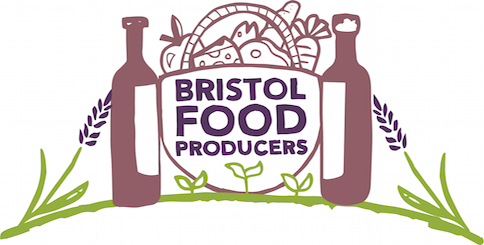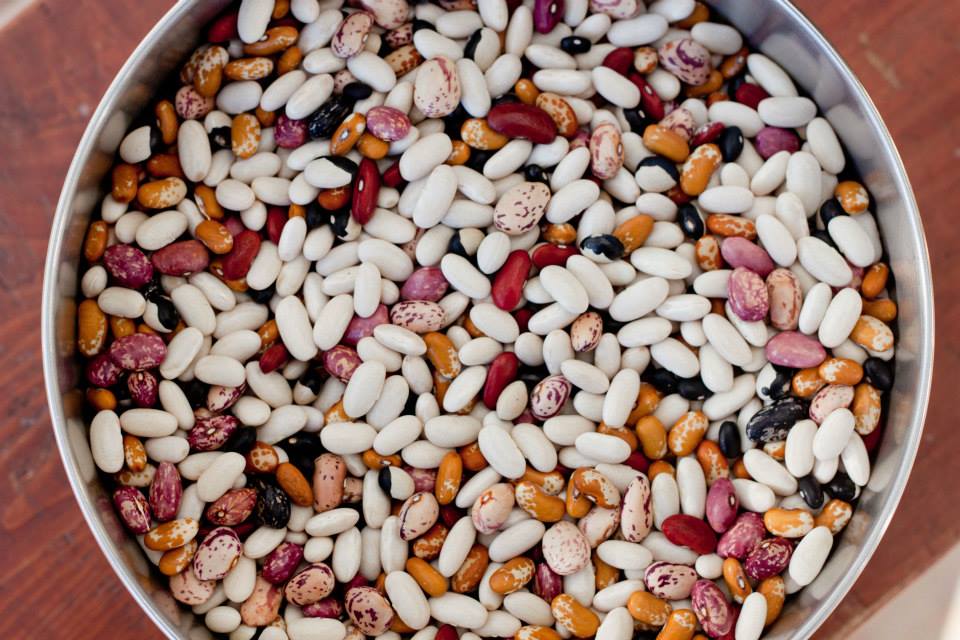In the UK, farming is the least diverse profession, with 98.6% of farm managers and holders being white British. At Bristol Food Producers, we acknowledge we have not done enough to address this issue. The events of the last few months have brought these conversations to the forefront and we have realised we need to act now if this is going to change.
Firstly, we recognise the lack of diversity within our organisation – we have one BAME board member out of seven, and only a handful of BAME members in the organisation as a whole. We are aware there are 91 languages spoken across Bristol, all with diverse food cultures, and this diversity is a central part of what makes our city a great city. Where possible, everyone should be able to access locally grown and culturally appropriate food, and the opportunity to pursue a career in food production.
As we start this journey to create a more inclusive and diverse future for BFP, we decided to share the process openly – the challenges, the progress and the things we get wrong along the way. Through this, we are aiming to be transparent about this work and encourage other organisations to engage in these conversations and share the work they are doing so we can learn from each other. We welcome thoughts and feedback from our members.
Here are some of the questions we’ve been asking ourselves over the past two months:
Question 1: What can we do with limited capacity?
Our first action has been to set up meetings every 3-4 weeks specifically focused on this topic to give the issue the time that it truly deserves. If we are going to make significant change, we need to make time to listen and learn, and discuss and debate the situation thoroughly. We have also made diversity a standing item in the monthly board meeting agendas to make it a core tenant of our work and ensure that we can never overlook it.
We are a small organisation with limited capacity – our coordinator only works one day per week, and our board of seven is voluntary. However, this doesn’t mean we can’t or shouldn’t be doing this work – instead we are looking at what is within our capacity, what to focus on when, what we can signpost to and what additional capacity we might need.
Question 2: How can we diversify our organisation?
There are two aspects to this – our board and our membership.
Within our board we have committed to actively seeking new BAME board members, and will shortly be putting out an advert to reflect this. We will ensure that this advert goes to a wide audience to reach the broadest number of people, which includes advertising in different avenues than we normally use.
With producer members, the difficult reality is that there are very few BAME landworkers in the UK. Diversifying our producer membership is a long term aim and for this we need to be looking at the barriers for BAME people getting into farming, and how we can address these. See question 3 for more on this.
We can begin by encouraging BAME supporters and business members, and this will be something we will start addressing in the next 6 months. We will provide more information in the coming weeks and months about this process.
Question 3: What are the barriers to BAME people entering farming
There are numerous barriers to entering a career as a farmer, and these are even more prevalent for the BAME community. Land ownership is concentrated into the hands of a few wealthy people, with 1% of the population owning more than 50% of the land in England, and the land that is for sale being at very high prices. Many farms are passed down through families, making it challenging for new entrants. In addition, there are very limited training opportunities available that focus on organic or agroecological production, and most are advertised through a small network.
The two main focuses in our work right now are around access to land and training. We are hoping to launch organic horticulture training in Bristol in the next year, and we are looking at how we can embed diversity in the heart of this programme and make this training truly available to people considering farming as a career across Bristol. We will take the time in the coming months to see how we can do this successfully and examine the opportunities and barriers to achieve this goal, but it will include community consultation, advertising in BAME spaces, reserving spaces for BAME people, and look at ways to help fund and support participation.
With land access, we are aiming in the long term for a patchwork of growing sites across the city, linking with the mayors aim for there to be food growing in every ward. If this becomes possible, we will look at how we can ensure we make opportunities available to BAME people, including taking positive action around advertising opportunities and providing additional support to address barriers such as start up costs.
Question 4: How do we make decisions?
It probably seems a little tedious, but over the coming 6 months we’ll be reviewing all our internal policies – from employment to purchasing – to make sure that we embed diversity within them. Perhaps this looks like committing to interview one BAME candidate for each role we might advertise for, or maybe it looks at our purchasing policy and exploring how we can buy from more BAME owned businesses.
Question 5: How are we talking about our work?
We send out monthly newsletters and share content on our social media, so we’ve begun discussing how we can do this better to represent more diverse voices. While we have limited capacity ourselves to generate content, what we can do, and commit to doing in the long term, is sharing more content written by BAME landworkers and around issues of race in farming. How can we use our channels to amplify these voices and encourage conversation and action?
We are also looking at how we talk about food and farming. Are we using the right language? Is the terminology we use accessible? How can we communicate the importance of agroecological farming in a more open way?
What now?
This is our first step. We’d love to hear from other organisations and businesses about what you are doing so we can share learning together. Get in touch via bristolfoodproducers@gmail.com
Further reading/research we’ve been doing:
- Farming While Black by Leah Penniman – a book looking at her work at Soul Fire Farm in the USA
- This list of anti-racism and anti-oppression resources put together by Growing Communities
- The Race and Farming in the UK webinar put on by the Landworkers’ Alliance.
- The work of LION who are addressing land and racial justice in the UK
- The work of A Growing Culture and their online webinars and podcasts about a resilient food system post Covid
- A blog piece by Ped Asgarian from The Community Farm, one of our board members.
- Asher Craig’s blog about food insecurity and inequality.

